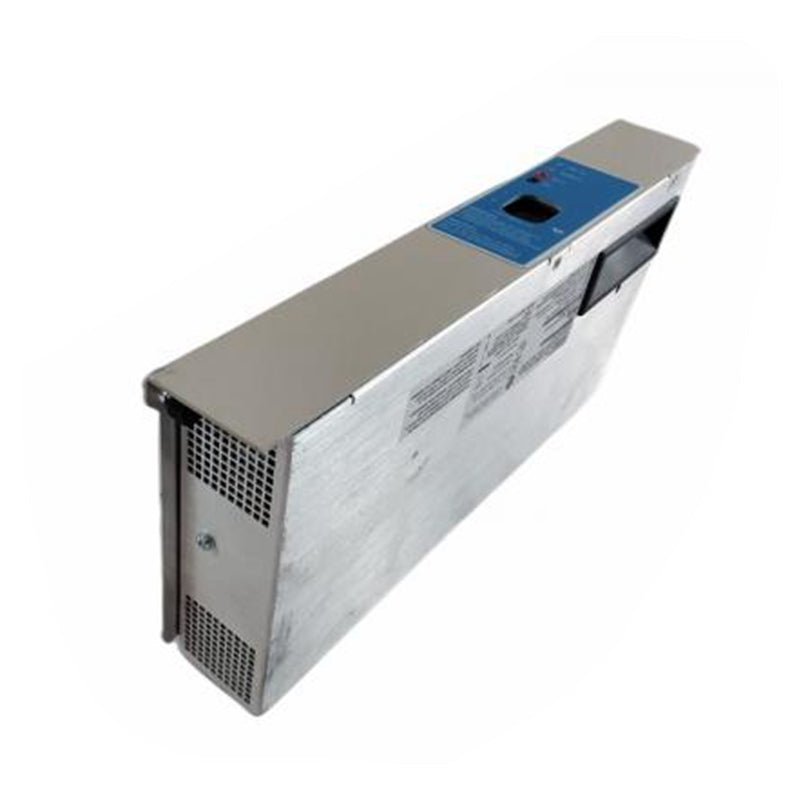Avtomatlaşdırmada sənaye nəzarətçilərinin əsas rolu

Sənaye nəzarətçiləri ilə tanışlıq
Sənaye nəzarətçiləri ağıllı istehsalın idarə edilməsində mühüm rol oynayır. Bu cihazlar şirkətlərə müxtəlif sənaye proseslərinə nəzarət, monitorinq və qeyd etməklə avtomatlaşdırmaya nail olmaqda kömək edir. Proqramlaşdırıla bilən məntiq nəzarətçilərindən (PLC) əsas komponentlər kimi istifadə etməklə, müəssisələr avadanlığa nəzarət və məlumatların toplanmasına səmərəli şəkildə idarə edə bilərlər.
İstehsalın Səmərəliliyinin artırılması
Sənaye nəzarətçiləri avtomatlaşdırılmış məlumatların toplanması və təhlili vasitəsilə istehsalın səmərəliliyini artırır. Onlar istehsal prosesinin müxtəlif mərhələlərini birləşdirir, qüsursuz məlumat mübadiləsini və real vaxt ötürülməsini təmin edir. Bu qabiliyyət nəinki nəzarəti təkmilləşdirir, həm də təşkilat daxilində qərar qəbuletmə qabiliyyətlərini gücləndirir.
Proseslərin dəqiqliklə optimallaşdırılması
Bundan əlavə, sənaye nəzarətçiləri iş axını dizaynını optimallaşdıra bilər. Lazımsız addımları aradan qaldıraraq, əməliyyatları sadələşdirir və məhsuldarlığı artırırlar. PID nəzarətçiləri kimi alqoritmlər müxtəlif parametrlərə dəqiq nəzarət etməyə imkan verir ki, bu da prosesin sabitliyini və etibarlılığını artırır. Nəticə etibarı ilə təşkilatlar məhsulu daha səmərəli və daha ardıcıllıqla istehsal edə bilirlər.
İdarəetmə sistemlərinin inteqrasiyası
MES, ERP, WMS və QMS kimi ağıllı istehsal idarəetmə sistemlərinin inteqrasiyası hərtərəfli əməliyyat çərçivəsi yaradır. Bu inteqrasiya olunmuş idarəetmə təkcə sifarişlərin yerinə yetirilməsi imkanlarını yaxşılaşdırmır, həm də keyfiyyətin idarə edilməsini artırır. Əmək xərclərini azaltmaqla və insan səhvlərini minimuma endirməklə, bu sistemlər daha səmərəli və etibarlı istehsal mühiti yaradır.
Qabaqcıl Data Analizindən istifadə
Bundan əlavə, ağıllı istehsal sistemləri güclü məlumat təhlili və proqnozlaşdırma imkanlarından istifadə edir. Bu qabaqcıl analitika təşkilatlara real vaxt məlumatları əsasında məlumatlı qərarlar qəbul etməyə imkan verir. Əl müdaxiləsinə ehtiyacı azaltmaqla, müəssisələr öz əməliyyat səmərəliliyini artıra və diqqətini daha yüksək səviyyəli tapşırıqlara yönəldə bilərlər.
Ağıllı fabriklərə çevrilir
Ağıllı fabriklərə çevrilmə böyük ölçüdə rəqəmsal texnologiyalara və süni intellektə əsaslanır. Bu texnologiyalar istehsal proseslərinin intellektual idarə olunmasına imkan verir ki, bu da məhsuldarlığı əhəmiyyətli dərəcədə artırır. Bu dəyişiklik təkcə ənənəvi İT xidmətlərinin məhdudiyyətlərini pozmur, həm də istehsalın ağıllı təkamülünə təkan verir.
Nəticə
Yekun olaraq, sənaye nəzarətçiləri istehsal proseslərinin avtomatlaşdırılmasına əhəmiyyətli töhfə verirlər. Müxtəlif tətbiqləri vasitəsilə - avadanlıqlara nəzarət, məlumatların təhlili, iş axınının optimallaşdırılması, inteqrasiya olunmuş idarəetmə və rəqəmsal transformasiya - onlar təşkilatlara istehsalın səmərəliliyini və keyfiyyətin idarə edilməsini gücləndirmək imkanı verir. Sənayelər avtomatlaşdırmanı mənimsəməyə davam etdikcə, bu nəzarətçilərin rolu daha da həyati əhəmiyyət kəsb edəcək və onları əməliyyat mükəmməlliyi axtarışında vacib alətlər kimi yerləşdirəcək.

























